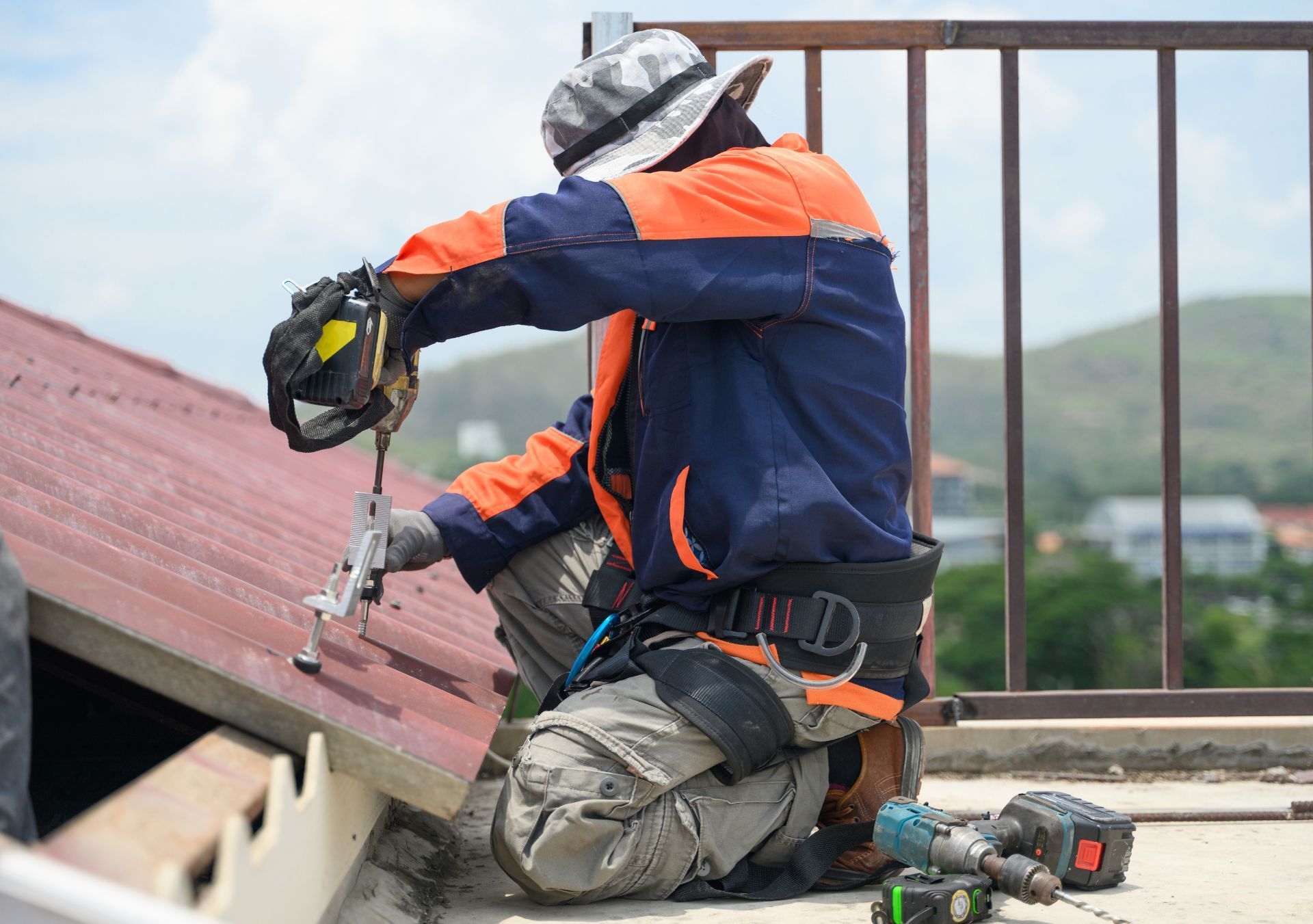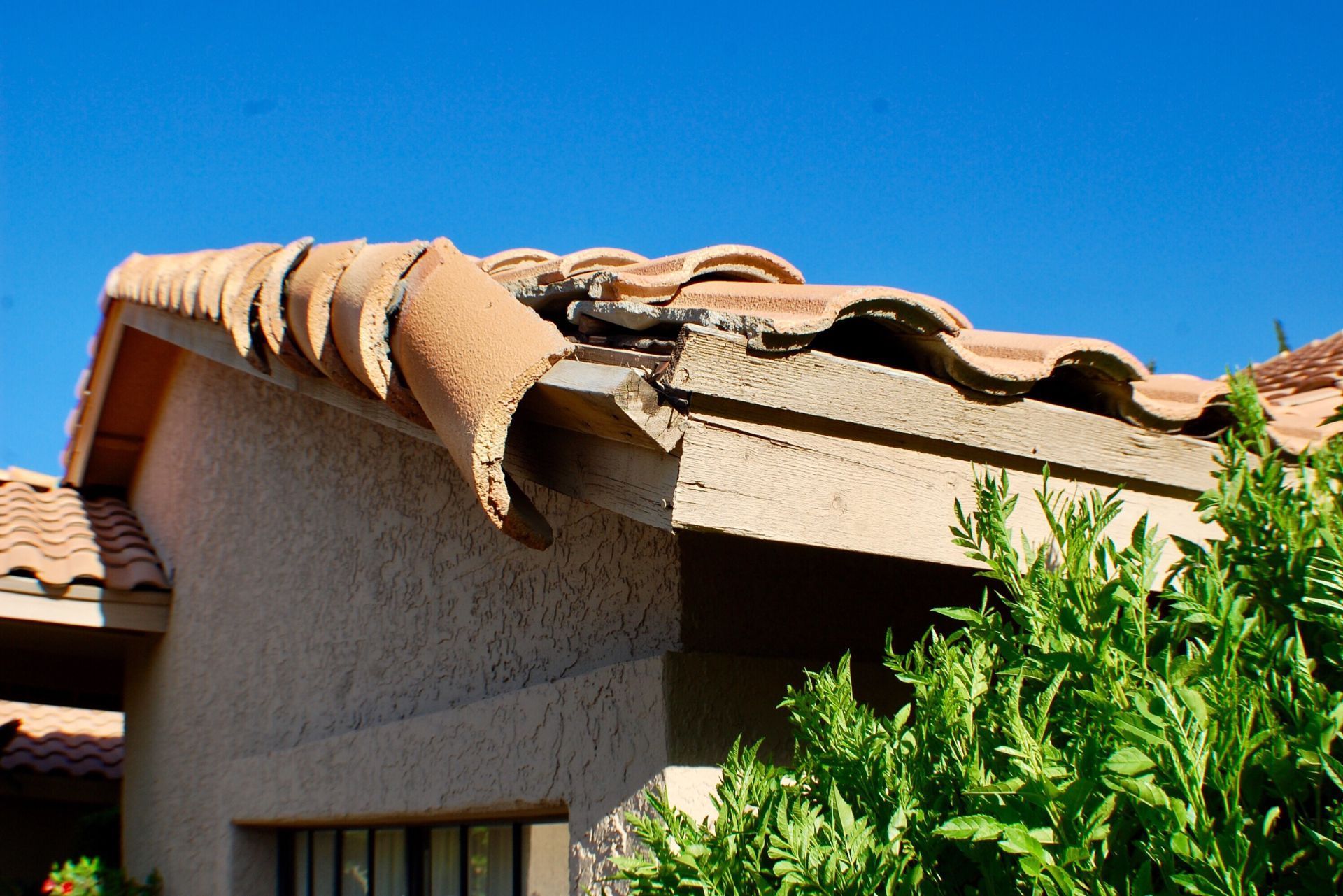Arizona Roofing Contractor Insurance
See How We're Different:
or Call Us:(480) 526-3222

Most Common Business Policies
Index
Contact Us
In the competitive world of roofing, contractors face a myriad of challenges, from unpredictable weather to fluctuating material costs. One crucial aspect that often gets overlooked is insurance. For roofing contractors in Arizona, understanding insurance requirements is essential for protecting their business and ensuring compliance with state laws. This article delves into the various types of insurance available, the legal requirements, and tips for selecting the right coverage.
Understanding the Importance of Insurance for Roofing Contractors
Insurance serves as a safety net for roofing contractors, providing financial protection against unforeseen events. Whether it’s property damage, accidents, or legal claims, having the right insurance can safeguard a contractor's livelihood. In an industry where the stakes are high and the work is often performed at great heights, the importance of comprehensive insurance coverage cannot be overstated. It not only protects the contractor but also instills confidence in clients, knowing that they are working with a professional who prioritizes safety and accountability.
Types of Risks Faced by Roofing Contractors
Roofing contractors encounter various risks that can lead to significant financial losses. These include workplace injuries, damage to client property, and even lawsuits stemming from dissatisfied customers. Each of these risks can have profound implications for a contractor’s business. Beyond the immediate financial repercussions, there are also reputational risks to consider. A contractor known for frequent accidents or poor workmanship may find it challenging to secure future contracts, as word-of-mouth and online reviews can significantly influence potential clients' decisions.
For instance, a worker falling from a roof can lead to hefty medical bills and potential legal action. Similarly, if a roofing project leads to water damage in a client's home, the contractor could be held liable for repairs. Understanding these risks is the first step in determining the appropriate insurance coverage. Furthermore, contractors must also consider risks related to equipment theft or damage, which can disrupt operations and lead to delays in project completion. Investing in insurance that covers tools and equipment can mitigate these risks, allowing contractors to focus on their work without the constant worry of financial strain from unforeseen incidents.
Legal Requirements for Roofing Contractors in Arizona
Arizona has specific legal requirements regarding insurance for roofing contractors. The state mandates that all contractors carry general liability insurance, which protects against claims of bodily injury or property damage. Additionally, workers' compensation insurance is required for contractors with employees, ensuring coverage for work-related injuries. This legal framework is designed to protect not only the contractors but also the clients and the general public, creating a safer working environment across the industry.
Failure to comply with these legal requirements can result in penalties, including fines and the potential loss of a contractor's license. Therefore, it is crucial for roofing contractors to be aware of these regulations and ensure they are adequately covered. Moreover, contractors may also benefit from additional coverage options, such as professional liability insurance, which can protect against claims of negligence or failure to deliver services as promised. By proactively seeking comprehensive insurance solutions, contractors can not only meet legal obligations but also enhance their business resilience in an increasingly competitive market.

Types of Insurance Coverage for Roofing Contractors
There are several types of insurance coverage that roofing contractors should consider. Each type addresses different risks and offers varying levels of protection. Understanding these options can help contractors make informed decisions about their insurance needs.
General Liability Insurance
General liability insurance is essential for roofing contractors. It covers claims related to bodily injury, property damage, and personal injury that may occur during the course of a project. For example, if a client trips over equipment left on their property and sustains an injury, general liability insurance can help cover medical expenses and legal fees.
This type of insurance not only protects the contractor but also provides peace of mind to clients, knowing that they are working with a responsible and insured professional. Many clients require proof of general liability insurance before hiring a contractor, making it a critical component of a roofing business. Additionally, having this coverage can enhance a contractor's reputation, as it demonstrates a commitment to safety and accountability in their operations. This can lead to increased client trust and potentially more business opportunities.
Workers' Compensation Insurance
For roofing contractors with employees, workers' compensation insurance is a legal requirement in Arizona. This insurance provides coverage for medical expenses and lost wages for workers who are injured on the job. Given the physically demanding nature of roofing work, the risk of injury is significant, making this insurance vital for protecting both the contractor and their employees.
In the event of an accident, workers' compensation can help mitigate the financial burden on the contractor, as it covers the costs associated with the injury without the need for litigation. This not only fosters a safer work environment but also enhances employee morale and trust in the employer. Furthermore, having robust workers' compensation coverage can attract skilled labor, as workers are more likely to choose employers who prioritize their health and safety through adequate insurance protections.
Commercial Auto Insurance
Roofing contractors often rely on vehicles to transport materials and equipment to job sites. Commercial auto insurance is essential for protecting these vehicles and the contractor's liability in the event of an accident. This coverage can help pay for repairs to vehicles, medical expenses for injuries, and damages to other parties involved in an accident.
It is important to note that personal auto insurance typically does not cover accidents that occur while using a vehicle for business purposes. Therefore, obtaining commercial auto insurance is a necessary step for roofing contractors who use their vehicles for work-related activities. Additionally, this insurance can extend to cover specialized vehicles, such as trucks equipped with ladders and tools, ensuring that all aspects of the contractor's operations are safeguarded. As a result, having commercial auto insurance not only protects the contractor's assets but also supports the smooth operation of their business, allowing them to focus on delivering quality roofing services without the worry of unexpected financial setbacks.
In addition to the basic insurance requirements, roofing contractors may want to consider additional coverage options to further protect their business. These options can provide extra layers of security against specific risks associated with roofing work.
Professional Liability Insurance
Professional liability insurance, also known as errors and omissions insurance, is designed to protect contractors against claims of negligence or inadequate work. If a client believes that the contractor's work did not meet industry standards or resulted in financial loss, this insurance can help cover legal fees and settlements.
This type of coverage is particularly important for contractors who provide design or consulting services, as it addresses risks that general liability insurance may not cover. By investing in professional liability insurance, roofing contractors can protect their reputation and financial stability. Furthermore, having this insurance can enhance a contractor's credibility with clients, as it demonstrates a commitment to quality and accountability. Clients are often more inclined to work with contractors who are fully insured, knowing they have recourse in the event of any issues arising from the work performed.
Equipment and Tools Insurance
Roofing contractors rely heavily on specialized tools and equipment to complete their projects. Equipment and tools insurance provides coverage for loss or damage to these essential items, whether due to theft, vandalism, or accidental damage. This coverage can help contractors avoid significant out-of-pocket expenses for replacing or repairing their tools.
Given the high cost of roofing equipment, having this insurance can be a wise investment. It ensures that contractors can quickly replace lost or damaged tools, minimizing downtime and keeping projects on schedule. Additionally, many contractors are unaware that equipment insurance can also cover rental costs for replacement tools if their own equipment is out of commission. This aspect can be crucial for maintaining workflow and meeting client deadlines, especially during peak seasons when demand for roofing services is high.
Umbrella Insurance
Umbrella insurance offers an extra layer of liability protection beyond the limits of existing policies. For roofing contractors, this can be particularly beneficial in the event of a catastrophic claim that exceeds the coverage limits of general liability or auto insurance. Umbrella insurance can help protect the contractor's assets and provide additional peace of mind.
While umbrella insurance is not a requirement, it can be a valuable addition for contractors looking to safeguard their business against large claims that could otherwise jeopardize their financial stability. Furthermore, umbrella policies can often cover a wider range of incidents, including those that may occur off-site or during non-business hours, thereby extending the contractor's protection. This comprehensive approach to risk management can be especially important in an industry where accidents can happen unexpectedly, and the financial repercussions can be substantial.
Choosing the Right Insurance Provider
Finding the right insurance provider is crucial for roofing contractors. The right provider will not only offer the necessary coverage but also provide support and guidance throughout the insurance process. Here are some tips for selecting an insurance provider.
Research and Compare Providers
Before settling on an insurance provider, it is essential to conduct thorough research. Look for providers that specialize in coverage for contractors, particularly those in the roofing industry. Comparing quotes from multiple providers can help identify the best coverage options and pricing.
Additionally, consider the provider's reputation and customer service. Reading reviews and testimonials can provide insight into the experiences of other contractors and help gauge the reliability of the provider. It may also be beneficial to reach out to local trade associations or industry groups, as they often have recommendations for reputable insurance companies that cater specifically to roofing professionals.
Evaluate Coverage Options
When comparing insurance providers, it is important to evaluate the coverage options they offer. Ensure that the policies meet the specific needs of a roofing contractor. Look for providers that offer customizable plans, allowing for adjustments based on the unique risks associated with each project.
Understanding the details of each policy, including deductibles and coverage limits, can help contractors make informed decisions about their insurance needs. Additionally, consider whether the provider offers any supplementary coverages, such as equipment breakdown or professional liability insurance, which can be vital in protecting against unforeseen circumstances that may arise during a project.
Seek Professional Advice
Consulting with an insurance agent or broker who specializes in contractor insurance can be beneficial. These professionals can provide valuable insights into the types of coverage needed and help navigate the complexities of insurance policies. They can also assist in finding the best rates and coverage options tailored to a contractor's specific business model.
Moreover, a knowledgeable agent can help contractors understand the nuances of their policies, ensuring they are fully aware of what is covered and what is not. This understanding is particularly important in the roofing industry, where the risks can vary significantly based on the type of materials used, the height of the structures being worked on, and the local weather conditions. By leveraging the expertise of an insurance professional, contractors can better protect their business and ensure they are adequately covered against potential liabilities.

The Cost of Insurance for Roofing Contractors
The cost of insurance can vary significantly based on several factors, including the size of the business, the types of coverage selected, and the contractor's claims history. Understanding these factors can help contractors budget for their insurance needs.
Factors Influencing Insurance Costs
Several factors can influence the cost of insurance for roofing contractors. These include the contractor's location, the number of employees, the types of projects undertaken, and the contractor's claims history. For instance, contractors with a history of claims may face higher premiums than those with a clean record.
Additionally, the specific coverage options chosen will also impact costs. More comprehensive coverage typically comes with higher premiums, while basic policies may be more affordable. It is essential for contractors to balance cost with adequate coverage to ensure they are fully protected.
Budgeting for Insurance
When budgeting for insurance, roofing contractors should consider the total cost of premiums as part of their overall business expenses. It is advisable to set aside funds specifically for insurance to avoid financial strain when payments are due.
Contractors should also review their insurance needs periodically, especially after significant changes in their business, such as hiring new employees or expanding service offerings. This ensures that coverage remains adequate and aligned with the current business landscape.
Common Misconceptions About Roofing Contractor Insurance
Many roofing contractors hold misconceptions about insurance that can lead to inadequate coverage or compliance issues. Addressing these misconceptions is vital for ensuring that contractors are fully informed about their insurance needs.
“I Don’t Need Insurance if I’m a Sole Proprietor”
One common misconception is that sole proprietors do not need insurance. However, even if a contractor operates independently, they are still exposed to risks that can lead to significant financial loss. General liability insurance is crucial for protecting personal assets from claims related to work performed.
Additionally, workers' compensation insurance is necessary if the contractor hires any employees, regardless of the business structure. Therefore, it is essential for all contractors, including sole proprietors, to prioritize insurance coverage.
“My Personal Insurance Covers My Business Activities”
Another misconception is that personal insurance policies will cover business activities. Most personal insurance policies exclude coverage for business-related activities, which can leave contractors vulnerable in the event of a claim. It is crucial to obtain separate business insurance to ensure adequate protection.
“Insurance is Too Expensive”
While insurance costs can be a concern, the potential financial consequences of being uninsured far outweigh the expense of coverage. The costs associated with legal claims, workplace injuries, or property damage can be devastating for a contractor's business. Investing in insurance is a proactive step toward safeguarding a contractor's financial future.
Conclusion
Insurance is an essential aspect of running a successful roofing contracting business in Arizona. Understanding the various types of coverage available, the legal requirements, and the importance of selecting the right provider can help contractors protect their business and ensure compliance with state regulations.
By prioritizing insurance, roofing contractors can navigate the risks associated with their work with confidence, allowing them to focus on delivering quality service to their clients. Investing in the right insurance not only safeguards the contractor's financial stability but also enhances their reputation as a responsible and trustworthy professional in the industry.
In a field where risks are inherent, having comprehensive insurance coverage is not just a safety measure; it is a critical component of a successful roofing business strategy. By being informed and proactive, roofing contractors can secure their future and thrive in the competitive Arizona market.
